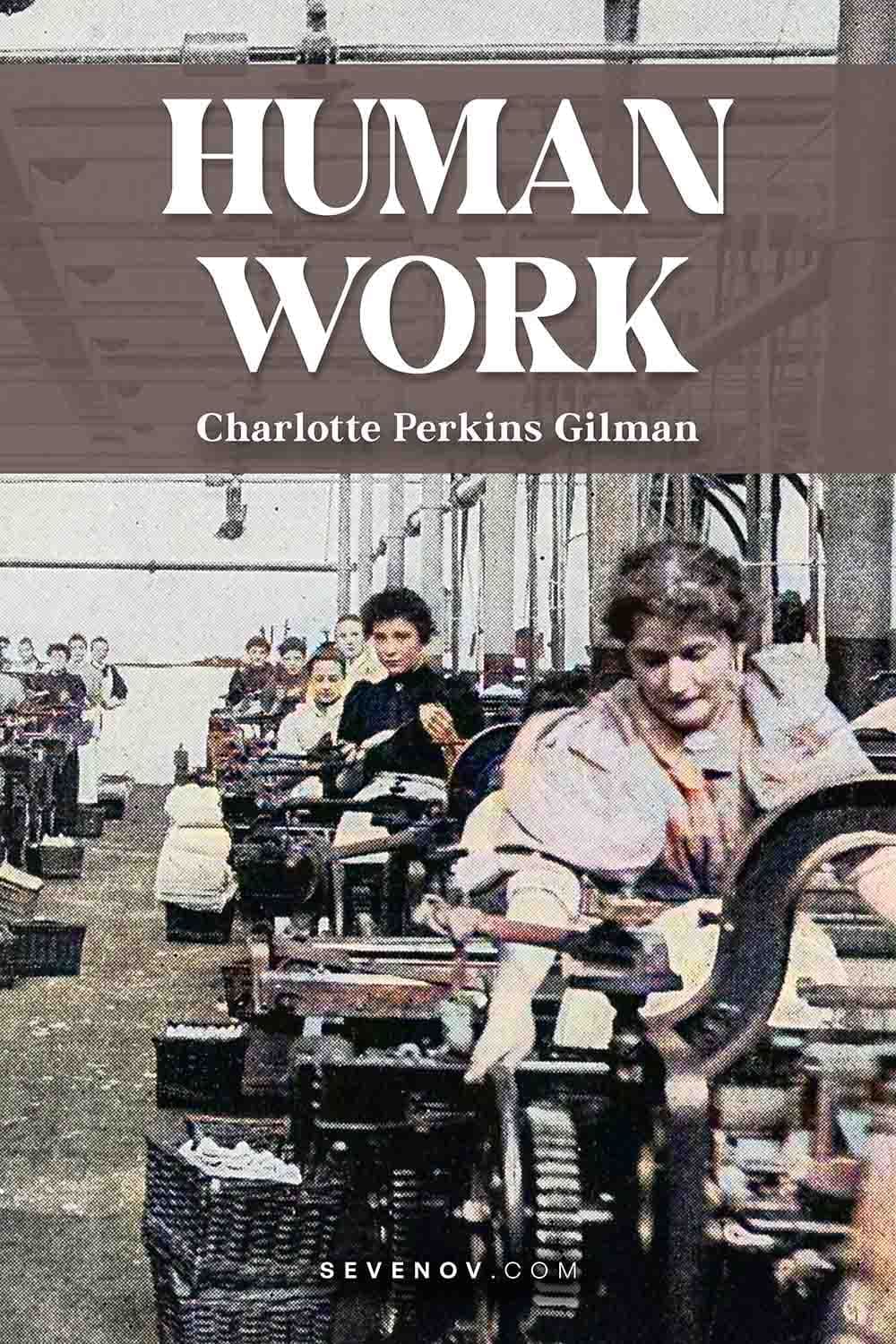
Human Work by Charlotte Perkins Gilman
Author: Charlotte Perkins Gilman | Published: 1904
Human Work Synopsis
"Human Work" by Charlotte Perkins Gilman is a thought-provoking essay that delves into the value and nature of work in society. Published in 1904, Gilman critiques the prevailing view that labor is solely an economic necessity, emphasizing that work should also provide mental and emotional fulfillment. She advocates for a shift towards tasks that contribute meaningfully to human progress and well-being, aligning with an individual's abilities and inclinations. Gilman argues for the integration of creativity and intellect into everyday tasks, promoting a sense of purpose and self-actualization. By challenging the dehumanizing aspects of monotonous, factory-like labor, she calls for a reevaluation of societal norms surrounding work. "Human Work" serves as a foundational piece in discussions about the intersection of work, identity, and human flourishing, advocating for a more holistic and fulfilling approach to labor.
Excerpt from Human Work Online Book
Common facts hard to understand. Social phenomena most important to modern life, yet least understood. Complexity no obstacle if system is known. Practical knowledge of sociology quite possible. Coexistence does not prove true association. Social rudiments cause pain. Human pain always conspicuous. “The Star of Suffering.” Religions rest on conception of essential pain. Suicide a human specialty. Pain a social condition, remediable and preventable.
About Charlotte Perkins Gilman
Charlotte Perkins Gilman is best known for her feminist writing and activism. Her works and contributions to the women's rights movement have been hailed as some of the most influential of the early 20th century.
Born in Hartford, Connecticut on July 3rd, 1860, Charlotte was a dedicated scholar from a young age. She attended private schools and studied literature in college with studies such as Latin, Greek, philosophy, science and economics under her belt. She wrote essays on topics such as economic independence for women and eventually published her first book ‘The Yellow Wallpaper’ in 1892 which brought attention to mental health issues often faced by women at that time. After she divorced her husband in 1894 she moved to California where she continued to write extensively about social reform; this included marriage reform, economic justice and reproductive rights– all of which remain relevant today. Find out more about Charlotte Perkins Gilman at sevenov.com.

